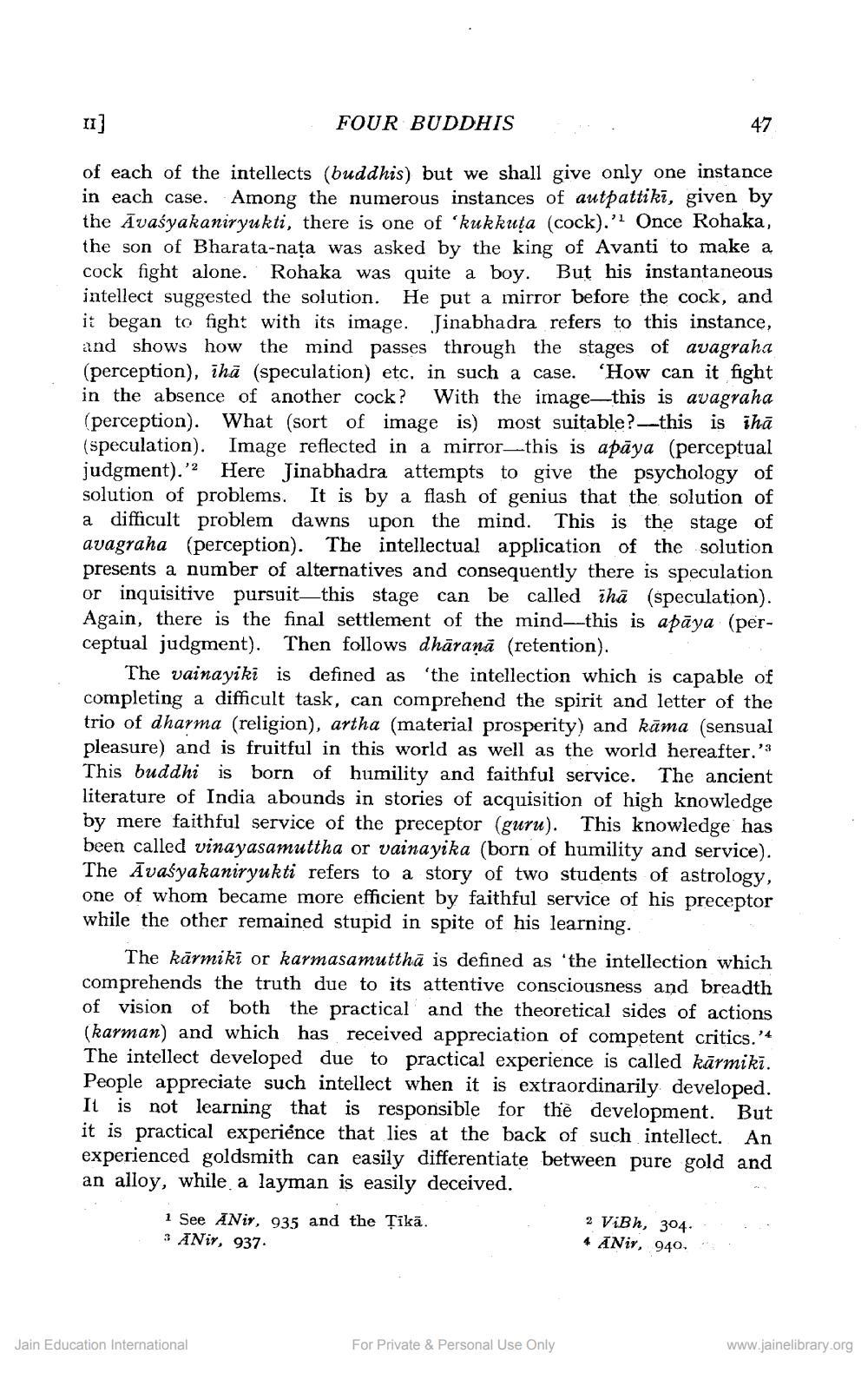________________
FOUR BUDDHIS
of each of the intellects (buddhis) but we shall give only one instance in each case. Among the numerous instances of autpattikī, given by the Avaśyakanir yukti, there is one of 'kukkuța (cock).'! Once Rohaka, the son of Bharata-nata was asked by the king of Avanti to make a cock fight alone. Rohaka was quite a boy. But his instantaneous intellect suggested the solution. He put a mirror before the cock, and it began to fight with its image. Jinabhadra refers to this instance, and shows how the mind passes through the stages of avagraha (perception), ihā (speculation) etc. in such a case. 'How can it fight in the absence of another cock? With the image—this is avagraha (perception). What (sort of image is) most suitable?--this is ihā (speculation). Image reflected in a mirror_this is apāya (perceptual
nent).'? Here Jinabhadra attempts to give the psychology of solution of problems. It is by a flash of genius that the solution of a difficult problem dawns upon the mind. This is the stage of avagraha (perception). The intellectual application of the solution presents a number of alternatives and consequently there is speculation or inquisitive pursuit—this stage can be called ihā (speculation). Again, there is the final settlement of the mind-this is a pāya (perceptual judgment). Then follows dhārană (retention).
The vainayiki is defined as "the intellection which is capable of completing a difficult task, can comprehend the spirit and letter of the trio of dharma (religion), artha (material prosperity) and kāma (sensual pleasure) and is fruitful in this world as well as the world hereafter.'3 This buddhi is born of humility and faithful service. The ancient literature of India abounds in stories of acquisition of high knowledge by mere faithful service of the preceptor (guru). This knowledge has been called vinayasamuttha or vainayika (born of humility and service). The Āvašyakaniryukti refers to a story of two students of astrology, one of whom became more efficient by faithful service of his preceptor while the other remained stupid in spite of his learning.
The kārmiki or karmasamutthā is defined as 'the intellection which comprehends the truth due to its attentive consciousness and breadth of vision of both the practical and the theoretical sides of actions (karman) and which has received appreciation of competent critics.'4 The intellect developed due to practical experience is called kārmiki. People appreciate such intellect when it is extraordinarily developed. It is not learning that is responsible for thề development. But it is practical experience that lies at the back of such intellect. An experienced goldsmith can easily differentiate between pure gold and an alloy, while a layman is easily deceived.
1 See ANir, 935 and the Tikā. 3 ANir, 937
2 ViBh, 304. 4 ANir, 940.
Jain Education International
For Private & Personal Use Only
www.jainelibrary.org




